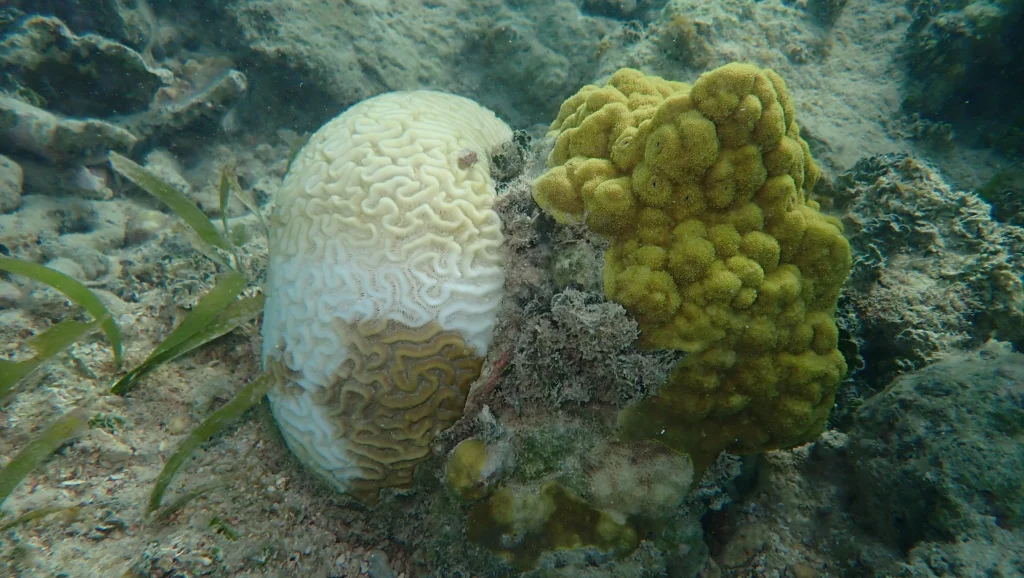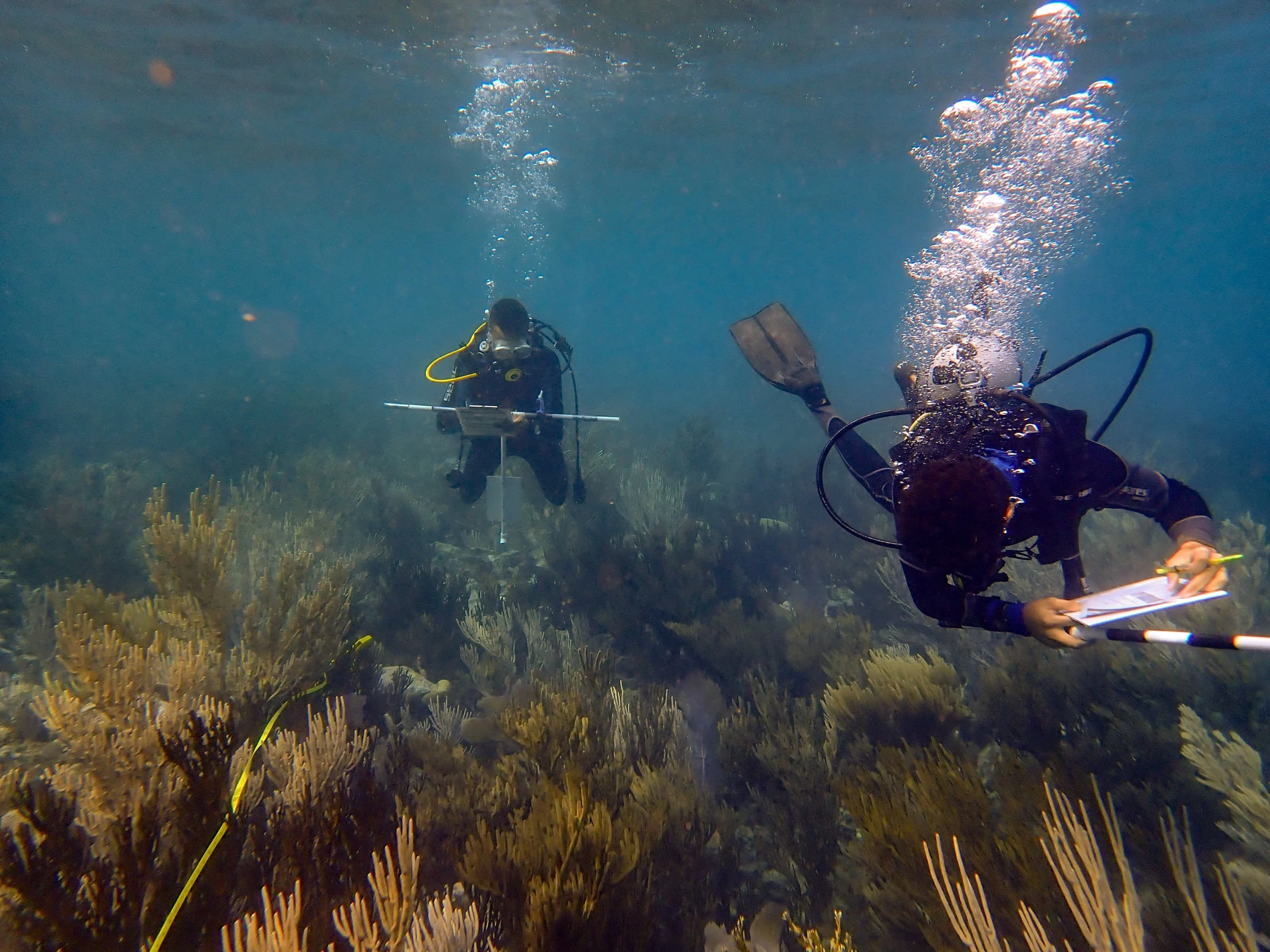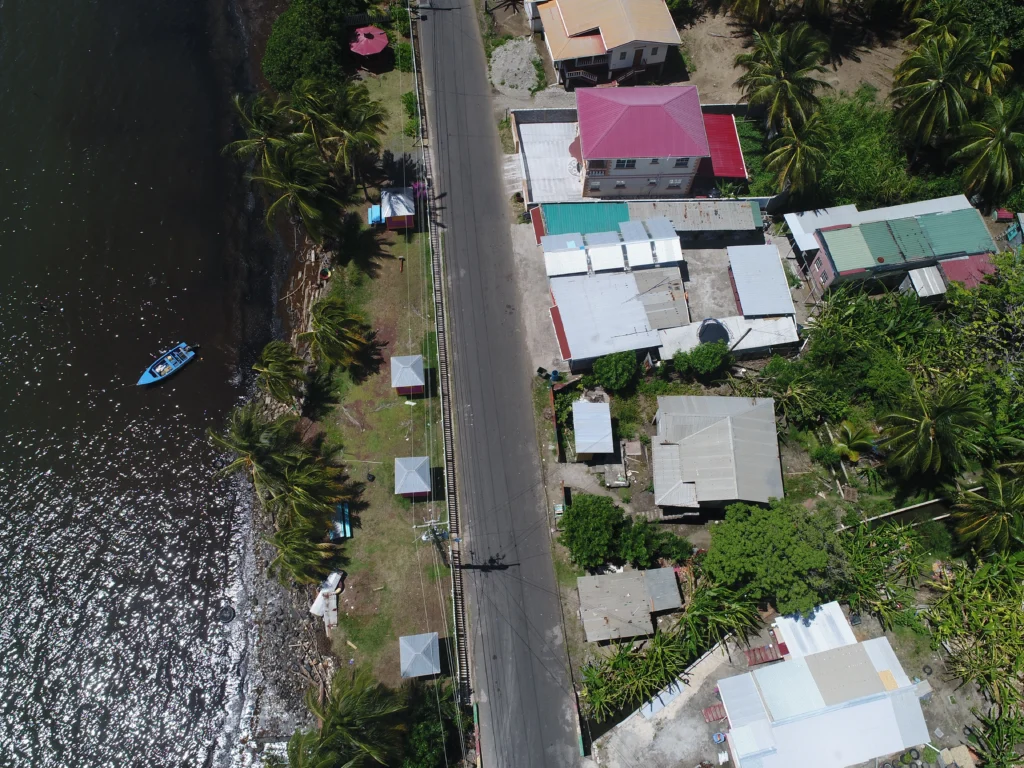The coral reefs of the Dominican Republic face increasing threats from rising ocean temperatures and coral diseases, driving an urgent need for scientific monitoring. Coordinated by the Dominican Reef Network (RAD) under technical advising by The Nature Conservancy (TNC), a nationwide initiative has tracked coral health from 2021 to 2024, providing vital data to inform conservation strategies.
Through the National Coral Disease Commission and the Plan for the Study of Coral Epizootiology, and under technical and logistical support from the Center for the Conservation and Ecological Development of Samana Bay and its Surroundings (CEBSE), researchers conducted 10 quarterly expeditions across 20 reef sites in five key locations along the Atlantic coast of the Dominican Republic. Over 183 survey records, scientists documented two major mass mortality events:
- 2021: A severe outbreak of Stony Coral Tissue Loss Disease (SCTLD), primarily affecting Orbicella and Pseudodiploria species.
- 2023: A mass coral bleaching event, the most severe recorded, linked to extreme ocean temperatures.
The third expedition of 2024 expanded the study beyond coral reefs to include six mangrove sites and six seagrass beds, most surveyed for the first time. This expansion was linked to MONITOREA, a project coordinated by the Dominican Foundation for Maritime Studies (FUNDEMAR) with support from TNC and funding from the French Embassy to the Dominican Republic. The MONITOREA project strengthens efforts to assess coastal ecosystem health by structuring these integrated surveys, reinforcing the need for continued monitoring and mitigation strategies.
During the latest expedition, SCTLD was still detected at multiple sites, highlighting its persistent impact. Additionally, coral bleaching events were observed, signaling increased vulnerability due to climate change. These findings reinforce the urgency of adaptive management strategies to prevent further ecosystem decline.
The study also tracks parrotfish (Scaridae) populations, which are essential for reef resilience due to their role in controlling macroalgae. The 2024 data show continued declines in abundance and biomass, likely due to fishing pressure. These trends emphasize the need for long-term fisheries management to maintain reef health.
A crucial component of this initiative is capacity building. The project has provided hands-on training to emerging ecologists, including Estefany Vargas (FUNDEMAR) and Yasmin Evangelista (MIMARENA), both senior biology students at the Universidad Autónoma de Santo Domingo (UASD). Their work in data collection contributes to their undergraduate theses, which are co-funded and co-supervised by TNC, demonstrating the project’s impact on marine science education in the Dominican Republic.
Findings from this initiative have led to three peer-reviewed scientific publications, reinforcing the importance of structured monitoring in understanding coral reef changes and disease outbreaks. The research has contributed to the global conversation on Caribbean reef conservation, providing a model for long-term ecosystem monitoring.
Moving forward, there is a pressing need to strengthen monitoring programs, expand technical training, and implement targeted conservation strategies to safeguard Dominican coral reefs. The success of this project highlights the power of collaboration, data-driven conservation, and investment in local expertise to protect these fragile ecosystems for future generations.

The views expressed in these articles are for information only and do not represent the official position of the Caribbean Biodiversity Fund or its partners.





